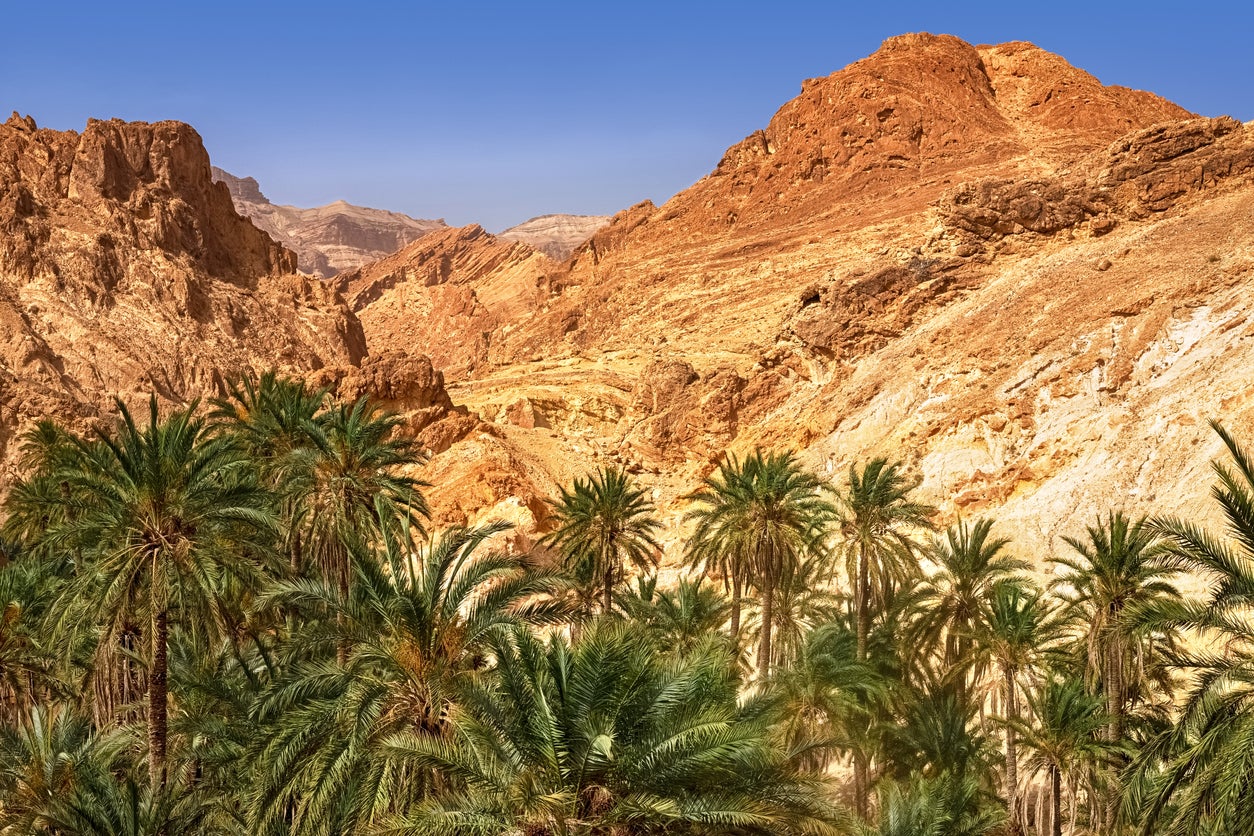The Green Wall project to restore the African Sahara is collapsing
Security issues, political apathy and insufficient funding threaten to derail Africa’s boldest conservation project

This article first appeared in our partner site, Independent Arabia
Sixteen years after its launch, the Great Green Wall, a huge project designed to promote peace and revive the arid African Sahara, is facing the risk of collapse due to terrorist threats, the absence of political leadership as well as the lack of sufficient funding.
The project began during a tumultuous period for the African continent. It is a bold initiative to combat desertification through the creation of a 5000-mile wall of trees, passing through 11 countries: Chad, Mali, Niger, Burkina Faso, Mauritania, Nigeria, Sudan, Ethiopia, Eritrea, Djibouti and Senegal.
The United Nations describes the project, led by the African Union, as “a green wall to promote peace and restore nature in Africa’s Sahel region”. This project, which comes at a time when an unprecedented drought is ravaging the continent, was expected to provide 10 million job opportunities by 2030.
Slow progress amid setbacks
Creating a great green wall that would enable the continent to combat the desertification affecting vast areas of it, was not novel idea. In fact, Thomas Sankara, Marxist revolutionary and former President of Burkina Faso, was the first to propose it after China established its Great Green Wall in 1978, a vast ecological project to restore nature in the Gobi desert.
Over a decade after its launch, officials in Africa’s Great Green Wall project have made some changes along the way. They have abandoned the idea of relying solely on afforestation, and have instead committed to the establishment of agricultural and green areas.
Issa Garba, an environmental activist from Niger, believes that “the lack of security in the African Sahel region actually constitutes an obstacle to the implementation of this huge project; however, it has to be acknowledged that the absence of political plans in the 11 countries through which this wall passes is also a problem.”
Garba added in an exclusive interview with Independent Arabia, “The Sahel countries have not allocated any spending in their budgets for this project. They are only waiting on funding from abroad, whether from the European Union, the African Union, or others.”
The activist stressed that “this project will persist despite its faltering and setbacks. However, completing it within the 2030 deadline remains an unattainable goal”.
Despite the growing voices calling for scrapping the project amid the existing stagnation, the number of countries who have embraced the project has now increased to over 20, and to give it momentum, the African countries involved in the project and their international partners have committed around 16 billion euros as of 2021.
Experts agree that the lack of security in the African Sahel region where terrorists in the attacks still constitute one of the biggest challenges hindering the implementation of the Great Green Wall project on the ground. However, they warn that work must resume urgently on the project to counter the threat posed by climate change.
Financial and security challenges
The tension looming over the African coast after a series of military coups that have increased security vulnerability in the region is not the only reason behind the delay in the realisation of the Great Green Wall project.
Ethiopia is one of the countries that have made the most remarkable progress in this field after it managed to revive two million hectares of land, creating more than 218,000 jobs in the process, according to official statistics. In 2019, it succeeded in planting 240 million trees in a single day. Niger has also had some success despite security threats and economic challenges. It has restored 800,000 hectares of land and made it suitable for agricultural use.
Ali Yahya, an analyst and international relations consultant, stated “The most significant threats facing humanity are environmental and climate-related, such as desertification, leading to the deterioration of arable land in some countries by more than 30 times the historical average, as seen in Algeria. Addressing these challenges requires cooperation and unity from everyone."
Yahya highlighted how "one of the most promising projects in the world to combat desertification is the Chinese Green Wall, which achieved significant success all along the Kubuqi Desert, and inspired the African continent to replicate the project from Djibouti in the east to Senegal in the west to hold back the southward expansion of the desert”.
Yahya added, "But despite the efforts made by many African countries to contribute to the success of the project, such as Ethiopia, Eritrea and others, in aiming to restore 100 million hectares of agricultural land by 2030, many of the desired goals have not been achieved due to several reasons. This includes inadequate funding, with at least 30 billion dollars (£24 billion) required to sustain the project."
He also pointed out that "the political, economic and security challenges faced by some of the countries through which the wall passes, the spread of terrorist groups, and social challenges related to the lack of environmental awareness in local communities supposed to be key contributors to the project’s success, have all hindered its progress."
Reviewed by Tooba Khokhar and Celine Assaf
Join our commenting forum
Join thought-provoking conversations, follow other Independent readers and see their replies
Comments
Bookmark popover
Removed from bookmarks